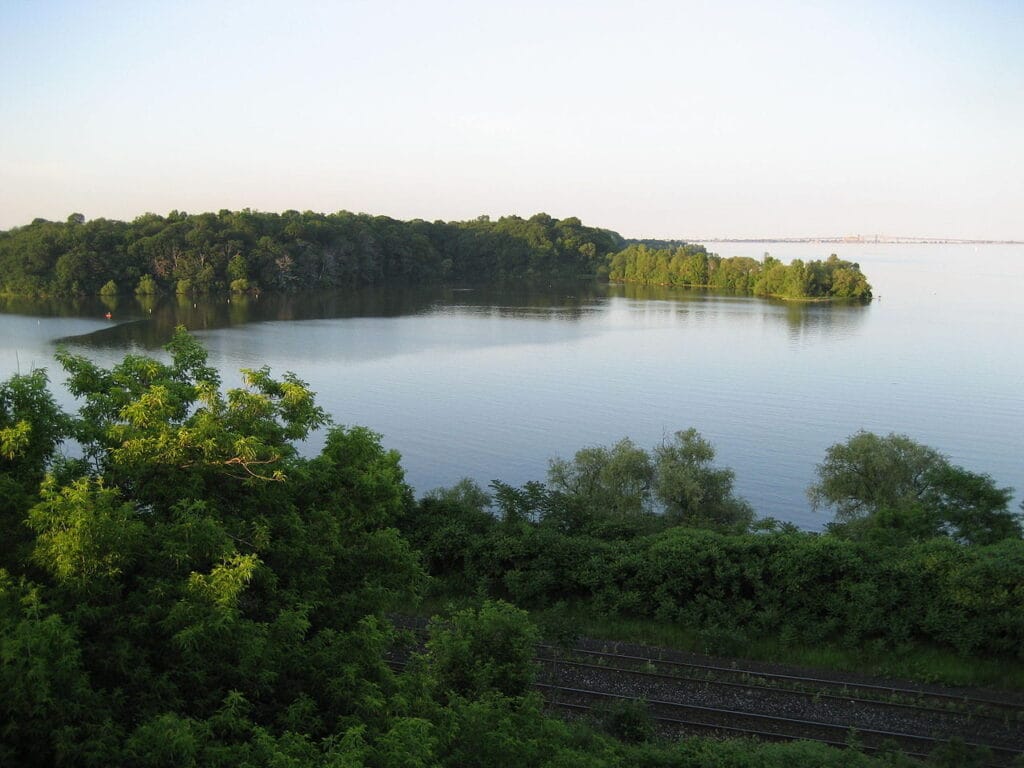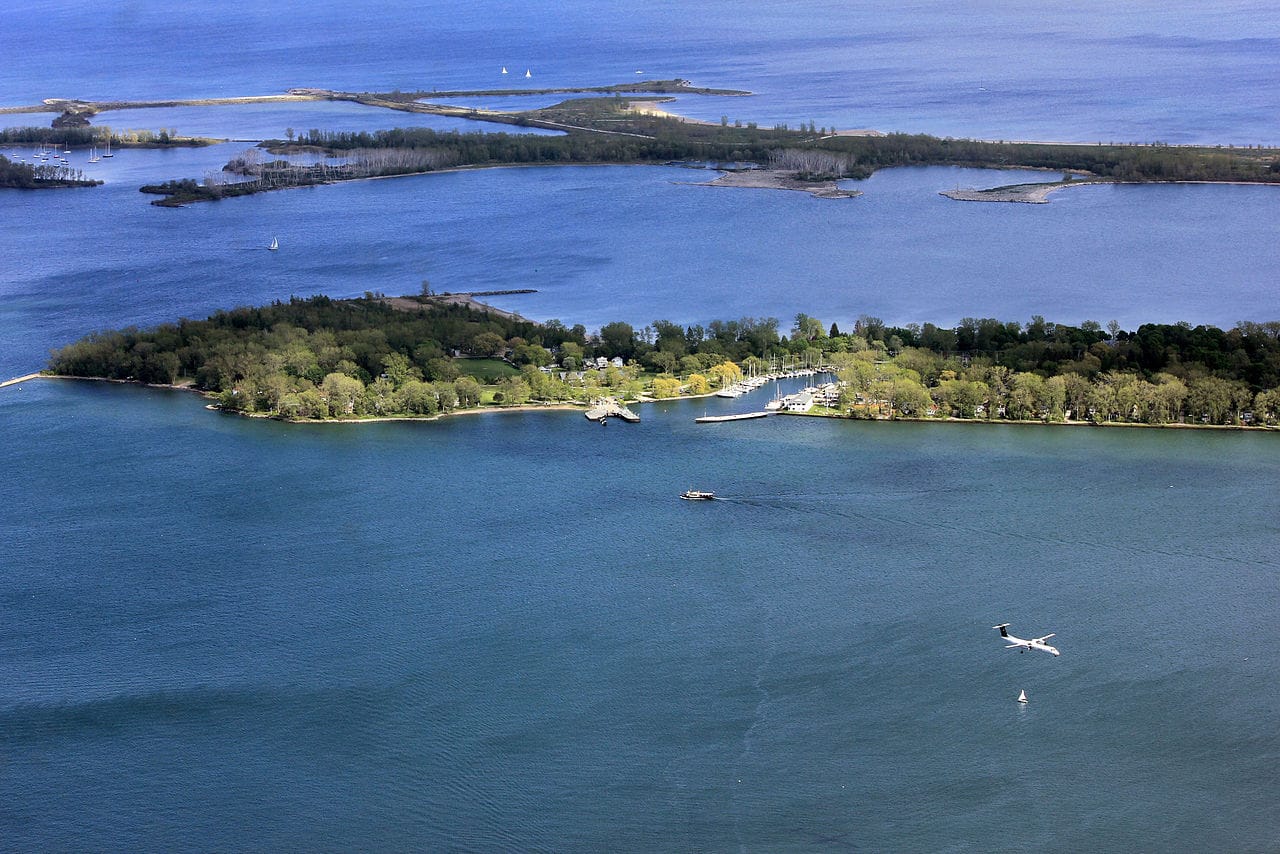There is a popular statement on the Internet: Canada has so many lakes that other countries cannot even compete with it in terms of this indicator. We decided to check if this is true.
Information that Canada has more than half of all the lakes in the world can be found on numerous entertaining And educational portals. They write about it on resources about travel, as well as websites, dedicated specifically to Canada. You can find such information in popular science literature, for example in Alan Weissman’s book “Life without people", and even in lesson plans in geography. Statementthat Canada has more lakes than the rest of the world, often meets V collections interesting facts about this country.
Lake from the point of view limnology (the science of inland waters - lakes, reservoirs, rivers, etc.) is a body of water surrounded by land, the area of which can reach several hundred thousand square kilometers (for example, Caspian Sea, which is called so because of its salty water, but in fact is considered a lake, - more than 386,000 km2), and may be limited to a few square meters. In everyday life, very small bodies of water are often called ponds, but they are clearly accepted in scientific circles criteria, according to which lakes, ponds, swamps and other inland bodies of water could be divided, there are no. That is why it is almost impossible to calculate the exact number of lakes in the world (and, accordingly, their area and total volume of water). It is constantly changing: some reservoirs dry up, others appear. This analysis provides data indicating the year of the study, however, it is likely that the actual figures at the time of publication may differ slightly, both up and down.
In 2006, an international group of scientists assessed number of lakes larger than 0.001 km2 in the world approximately 304 million. data Uppsala University (Sweden) for 2014, there were about 117 million similar reservoirs in the world with an area of more than 0.02 km2, not counting the glaciers of Greenland and Antarctica - researchers obtained such data from satellite images. In 2016, scientists from Canada's McGill University published study, according to which the number of lakes in the world is about 1.42 million. However, they only took into account large bodies of water, the area of which was more than 0.1 km2. Scientists also noted that 62% of such lakes are located in Canada. It is this study that the authors of articles periodically refer to, stating that all other countries in the world taken together are inferior to the North American country in terms of the number of lakes. However, this study did not take into account small bodies of water, and judging by the data of other researchers, there are hundreds of times more of them, and there is no reason to believe that most of them are also located in Canada. In addition, the study was the construction of a statistical model based on data about certain territories, so the results may not completely coincide with reality.

If we talk not about the number, but about the area that the lakes cover, then there is no reason to believe that Canada is superior to the rest of the world. The total area of lakes on the planet, according to data from the studies already mentioned above, for 2006 was about 4.2 million km2, for 2014 — more than 5 million km2. By information, indicated on the official website of the Canadian government, the total area of lakes in this country is indeed larger than in any other, but in any single country, and not in the whole world. So, the total area of the ten largest Canadian lakes, according to the Royal Canadian Geographical Society, does not even reach the Caspian Sea alone - 288,000 km2 versus 386,000 km2. Of course, as we have already said, we must not forget about smaller lakes, which together can significantly affect the indicators for countries. The International Association for Great Lakes Research studied 253 of the world's largest lakes—they account for almost 90% of the total area of such reservoirs. That is, the remaining lakes do not greatly affect the relationship between countries. The Association has drawn up map largest lakes - from it It's clear, that there really are a lot of them in Canada, but it is clear to the naked eye that if you add up the reservoirs of all other countries, they will surpass Canada in number.
The total volume of all lakes on Earth, as well as their number and area, is a constantly changing and difficult to measure quantity. However, according to data international group of limnologists for 2016, this figure was about 199,000 km3. The Royal Canadian Geographical Society puts the figure at 91,000 km3, but only takes into account fresh lakes. The largest freshwater lakes in Canada, according to them, have about 22,800 km3 water. For comparison, in one Russian Baikal — 23,000 km3. If we do not take into account the salinity of the water, then, according to data Scientists from McGill University, 41% of the volume of all world water in lakes is concentrated in the Caspian Sea, 13% in Lake Baikal, 10% in the African Lake Tanganyika. These figures, even if we do not take into account all the other lakes in the world, do not leave Canadian reservoirs a chance to surpass the rest of the countries combined in this indicator. However, as mentioned above, this study only took into account reservoirs with an area of more than 0.1 km2.
Thus, it is quite difficult to estimate the exact number, volume and area of lakes in the world - or individual countries, since there is no strict definition in science of what a lake is. Because of this, data for even one indicator in different studies can differ significantly depending on which bodies of water scientists decided to include in scientific work. In addition, these indicators are constantly changing, since lakes tend to dry up or, conversely, be replenished with water depending on various anthropogenic and natural factors. However, based on the scientific data available today, there is no reason to believe that Canada has more lakes than all other countries combined - neither in number, nor in volume, nor in area.
Cover photo: Yinan Chen, Public Domain, via Wikimedia Commons
Read on the topic:
- Great Lakes Guide. The Great Lakes
- EPA. Facts and Figures about the Great Lakes
- Is it true that there is an island of floating debris visible from space in the Pacific Ocean?
- Is it true that it is impossible to drown in the Dead Sea?
If you find a spelling or grammatical error, please let us know by highlighting the error text and clicking Ctrl+Enter.






